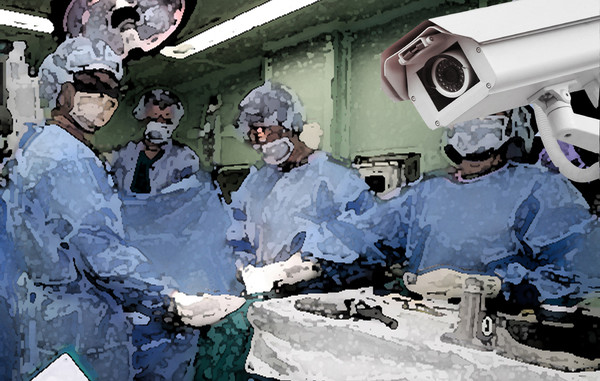Nine out of 10 physicians remain opposed to the amendment to the Medical Act, which calls for the mandatory installation of closed-circuit TVs in operating rooms, planned for implementation in 2023.

They cited “violations of human rights by monitoring medical staff” and “causing shrinkage in treatment and passive treatment” as reasons.
Instead of compulsory installation of CCTV in the operating room, medical professionals proposed that the government strengthen administrative penalties by, for instance, “revoking the licenses” of doctors who performed immoral and unethical acts, such as proxy surgery.
According to a survey asking doctors’ opinions of the amendment bill on mandatory installation and operation of CCTV in the operating room conducted by the Medical Policy Research Institute of the Korean Medical Association, 90 percent of 2,345 doctors opposed the installation of CCTVs in operating rooms, and only 10 percent expressed support for it.
Asked if the doctors agreed to an operation on them and their family members filmed with a CCTV, 86.5 percent of the respondents said they did not agree, and only 13.5 percent agreed to the CCTV recording of the surgical scene.
The survey also asked why they opposed the mandatory installation of CCTV in the operating room. The largest share, or 54.3 percent of the naysayers, cited the violation of human rights, and 49.2 percent said CCTV would intimidate doctors leading to passive treatment. Other replies to the multiple-reply question included the leakage of patients' sensitive personal information (48.1 percent), the possibility of unnecessary litigation and medical disputes (47.3 percent), and the potential criminal perception of medical personnel (45.7 percent).
As an effective alternative to installing CCTV in the operating room, a majority of doctors (38.3 percent) urged the government to enact stronger punishment for surrogacy surgery, followed by mandatory consents to prevent surrogate surgery (11.5 percent), and medical personnel regaining the public's trust on their own accord (11.5 percent).
Also, 21.8 percent of the respondents said that CCTV should be installed at the operating room’s entrance, not inside it.
As to the appropriate administrative punishment of doctors who committed unethical and immoral acts such as surrogate surgery, an overwhelming share of them called for revoking license (49.9 percent) and suspending license (44.5 percent).
As appropriate legal punishment, the doctors suggested imprisonment (39.2 percent), fines (31.3 percent), and imprisonment without physical labor (20.9 percent).
The survey was conducted before the amendment bill passed the National Assembly in August.
The institute pointed out that obligatory filming of surgery scenes, regardless of the data subject's consent, is unconstitutional because it infringes on human rights, personal rights, personal information self-determination, and freedom of occupation of all health and medical personnel, including doctors.
Therefore, it emphasized that when discussing the subordinate statutes, the government must consider measures that can minimize the violation of the basic rights of patients and healthcare workers.
The KMA's research agency also suggested that only patients exercise the right to request CCTV recording in the operating room. A guardian's request for filming should be recognized in exceptional cases where the patient has no decision-making ability before surgery.
Also, it said, the government should broadly acknowledge the rationale for refusing to film CCTV in the operating room and should prepare the location, image quality, number of installed units per operating room, and shooting method following the principle of minimizing infringement and violation of the basic rights of information subjects.
Regarding the video information security obligation, the institute proposed that the government plays an active role in the social loss and patient damage that may occur due to a dispute between a medical institution and a patient for any footage leaks despite the safety measures of the medical institutions.
Also, as the information subject has the right to choose and decide the scope of consent, as well as whether or not to consent to the processing of personal information, the government needs to discuss a subordinate statute that mandates head of a medical institution needs to provide image information with the consent of all medical personnel participating in the operation, it added.
"When preparing subordinate statutes, officials should design the legal in such a way as to minimize the infringement of the basic rights of data subjects," the Medical Policy Research Institute said. "During the two-year grace period, there need to be efforts to properly identify and diagnose problems and dysfunctions, and prepare alternative measures other than coercion based on such findings."
The amendment to the Medical Act, which includes the mandatory installation of CCTV in operating rooms, passed the National Assembly plenary session on Aug. 31 and was promulgated on Sep. 24.
After a two-year grace period, it will go into full effect from Sep. 25, 2023.

